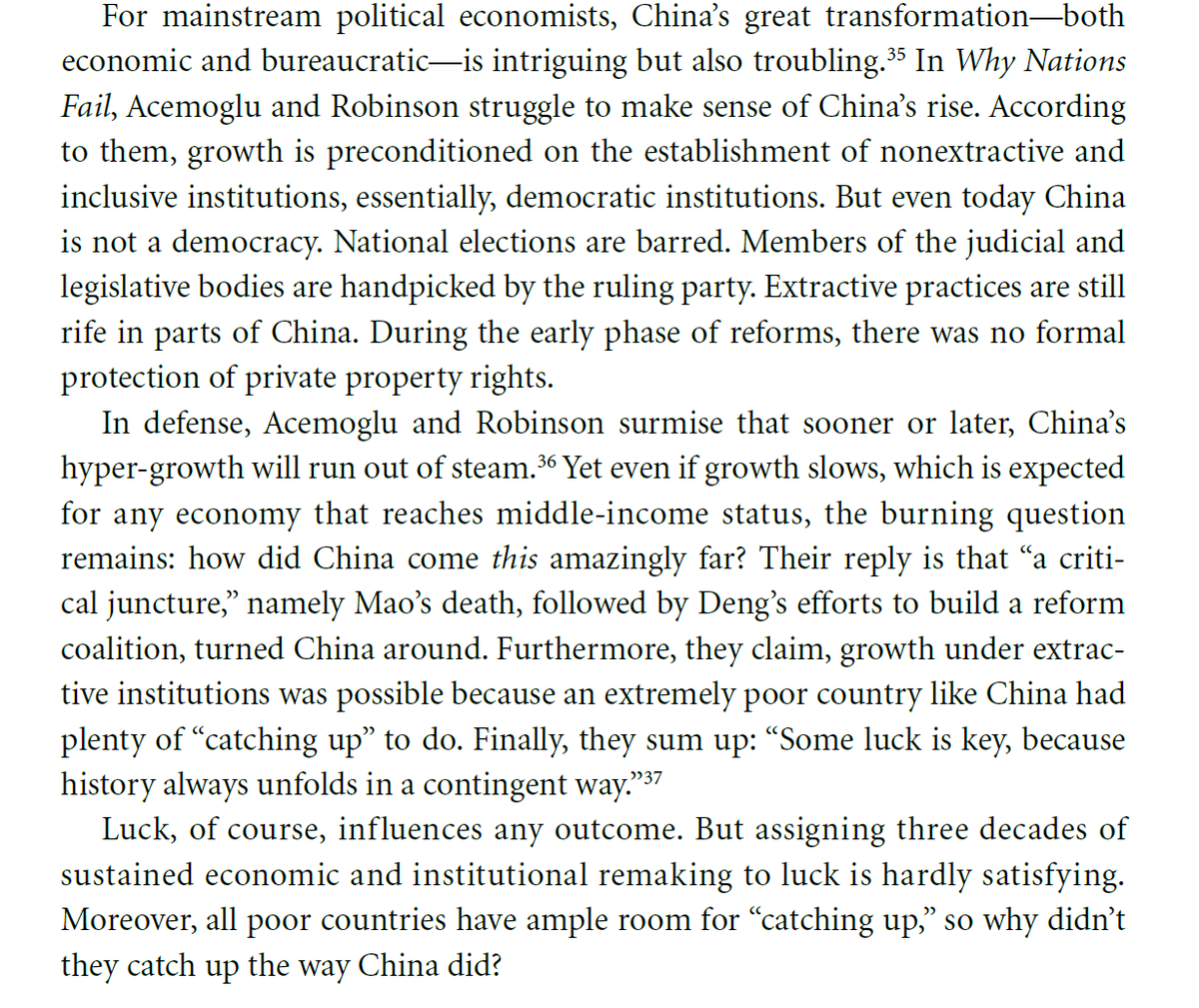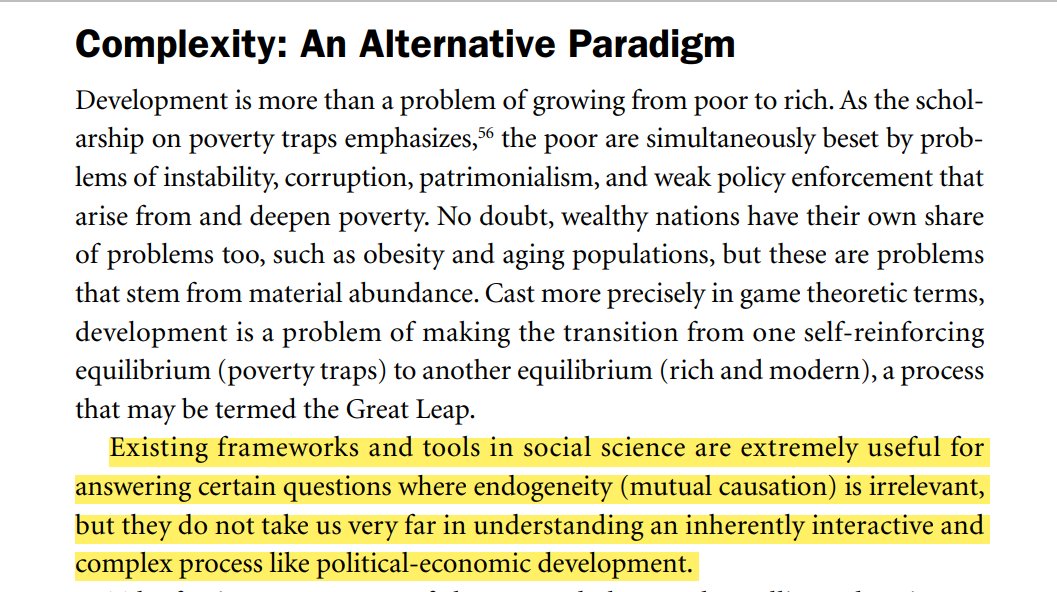
Alfred Chandler Chair Professor of Political Economy @JohnsHopkins
5 subscribers
How to get URL link on X (Twitter) App


 "The Nobel committee is supporting NIE’s legitimisation of property/wealth inequality and unequal development. Rewarding AJR also seeks to re-legitimise the neoliberal project at a time when it is being rejected more widely than ever before." ~ Jomo Kwame Sundaram (co-editor of "Is Good Governance Good for Development?", a thought-provoking book)
"The Nobel committee is supporting NIE’s legitimisation of property/wealth inequality and unequal development. Rewarding AJR also seeks to re-legitimise the neoliberal project at a time when it is being rejected more widely than ever before." ~ Jomo Kwame Sundaram (co-editor of "Is Good Governance Good for Development?", a thought-provoking book)


 A reminder from “Braiding Sweetgrass”
A reminder from “Braiding Sweetgrass” 



 Much of world assumes anything about China is exceptional & exotic, while anything about the West is universal
Much of world assumes anything about China is exceptional & exotic, while anything about the West is universal





 The term "rise" must be qualified
The term "rise" must be qualified
 Convention 👑
Convention 👑

https://twitter.com/NobelPrize/status/1845763241147785723
 A&R do not define "inclusive" or "non-extractive" institutions
A&R do not define "inclusive" or "non-extractive" institutions

https://twitter.com/NobelPrize/status/1845763241147785723The logic goes like this ➡️






 Instead, premodern societies were more “communistic” than capitalist
Instead, premodern societies were more “communistic” than capitalist 

 So naturally incentives gear toward trivial questions that can be (a) precisely & perfectly answered, (b) accepts conventional wisdom and wins approval.
So naturally incentives gear toward trivial questions that can be (a) precisely & perfectly answered, (b) accepts conventional wisdom and wins approval.


 Classical economists: America's development began with "the European form of good institutions"
Classical economists: America's development began with "the European form of good institutions" 

 Contrary to conventional wisdom, the good/strong institutional forms found in rich democracies are NOT universal preconditions for development
Contrary to conventional wisdom, the good/strong institutional forms found in rich democracies are NOT universal preconditions for development


 Complicated objects are made up of many separate parts that do not interact and change with one another (e.g., toasters).
Complicated objects are made up of many separate parts that do not interact and change with one another (e.g., toasters). 
https://twitter.com/JStein_WaPo/status/1725228522040406193Both the U.S. and China confront sharp inequality, corruption or capture of state power by economic elites, and persistent financial risks to common people who have no way to indemnify themselves.


https://twitter.com/yuenyuenang/status/1646899233612771329
 Endogeneity (mutual causation), like ambiguity 👇, is a fact of life
Endogeneity (mutual causation), like ambiguity 👇, is a fact of life https://twitter.com/yuenyuenang/status/1645955035077935105?s=20

https://twitter.com/Pavithra_Suri/status/1646852849286905857
 A template, like any infrastructure, is a powerful thing, constraining what you look for
A template, like any infrastructure, is a powerful thing, constraining what you look for

 Sun's defining thesis, "The International Development of China" (1919), reads like a boring blueprint of what China has been doing since the 1980s. But in those days, Sun was seen as a utopian, even a crackpot, for his vision of modernizing China's infrastructure. 🚆
Sun's defining thesis, "The International Development of China" (1919), reads like a boring blueprint of what China has been doing since the 1980s. But in those days, Sun was seen as a utopian, even a crackpot, for his vision of modernizing China's infrastructure. 🚆 